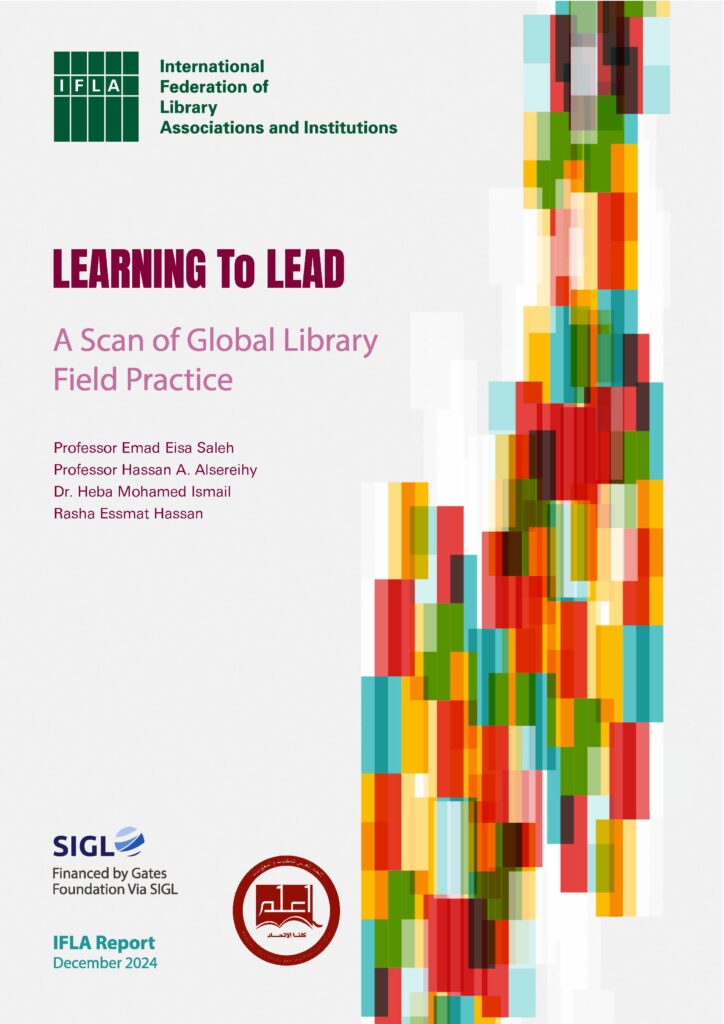Learning to lead: New report explores library leadership programming
20 January 2025
What do programmes aimed at supporting leadership in the library field have in common, and where do they differ? A new report commissioned by IFLA from the Arab Federation of Libraries and Information finds out what we can learn, and helps inform future programme development. This work is funded by SIGL.

Supporting leadership skill development is an essential element of any wider sustainability strategy. It can be a way of both enabling promising individuals to fulfil their potential, as well as giving those already taking key decisions the tools and frameworks needed to do so effectively.
IFLA itself ran the International Leaders Programme twice in the 2010s, and has since then prioritised emerging leaders in its grants for participation in the World Library and Information Congress.
In order to upgrade our own contribution to building leadership, today and into the future, IFLA therefore commissioned the Arab Federation of Libraries and Information to explore the state of leadership programmes, on the basis of an open call.
The work was funded by Stichting IFLA Global Libraries (SIGL), which administers the grant provided by Global Libraries to support IFLA’s work to strengthen the global library field.
Leadership matters
The report firstly offers an overview of the literature about leadership. This highlights the importance of building leadership as a skill-set, and the benefits this brings.
Download the report from our repository.
It also explores different approaches to leadership, and understandings of how this can change how organisations work. Furthermore, it looks at dimensions of leadership training, providing the basis for a methodology to scanning how programmes are organised.
Commonalities and differences
This desk research provided the basis for a survey of leadership programmes around the world, not just those focused on libraries, but also from other sectors. Information from over 60 programmes was gathered, and forms the basis for analysis.
This notes, for example a strong focus on building leadership and management skills across programmes, but then differences such as on innovation, diversity, advocacy and other issues. Similarly, it helps underline some quite different appraoches to the amount of time commitment required, whether participants are expected to pay, approaches to evaluation, and elements of the curriculum.
Challenges and responses
The report also shares valuable insights from respondents about the challenges they had to overcome in order to be able to meet their goals. These include questions such as how to recruit participants, drop-outs, a lack of funds, responding to diverse needs, as well as suggestions around communication, the value of partnerships, and using mentors.
Finally, it shares in-depth examples from a number of programmes, as well as an overview of all those covered so that readers can find out more. The report as a whole provides a useful evidence base for anyone thinking about how to run leadership programmes, and support leadership skill development in general.
We will also shortly release a complementary resource to help work through the key questions that must be answered when designing programmes (now available).
We are grateful to the authors from AFLI – Professor Emad Eisa Saleh, Professor Hassan A. Alsereihy, Heba Mohamed Ismail, and Rasha Essmat Hassan – as well as to SIGL for the financial support.
Webinar recording available
On 11 June, we hosted a webinar to share the key findings, highlights, and lessons learnt from the report and the IFLA companion handbook, plus expert reflections from IFLA’s Continuing Professional Development and Workplace Learning (CPDWL) and Management & Marketing (M&M) Sections. Access a recording of the webinar below!